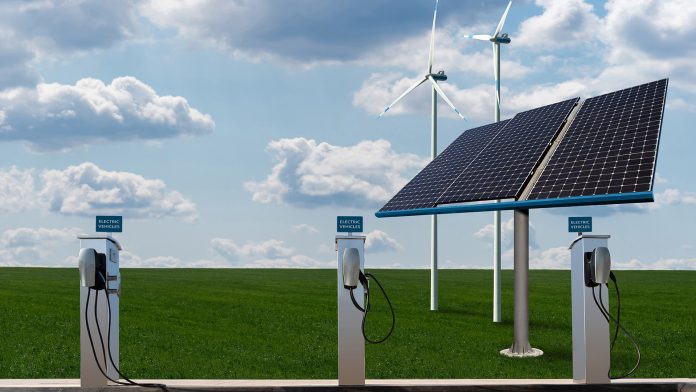A study has concluded the first systematic investigation on climate futures, indicating that deep decarbonisation by 2050 is not plausible.
Conducted by the Cluster of Excellence Climate, Climatic Change, and Society (CLICCS), this novel study analysed whether a future with net-zero carbon emissions was possible, considering the technical-economic perspective and societal changes required, and determined that achieving decarbonisation by 2050 is not plausible, with current endeavours requiring more ambition.
Detlef Stammer, a professor at the Universität Hamburg and CLICCS speaker, said: “Which climate futures are plausible is not only a physical question, it is at present especially a social one. In the Hamburg Climate Futures Outlook, we investigate the transformative power of social processes and have developed a completely new method for doing so. We’ll then combine the outcomes with findings from the natural sciences, allowing us to narrow down, step by step, what’s plausible.”
The most vital factors that are being explored – also known as social drivers – include national climate legislation, United Nations’ climate policy, protests and social movements, media coverage, and fossil fuel divestment. Of these drivers investigated in Outlook, none of the ten demonstrated the potential to attain deep decarbonisation by 2050, despite accomplishing this feat being critical to meeting the climate targets set out in the Paris Agreement.
Professor Anita Engels, a social scientist at Universität Hamburg and CLICCS Co-Chair, said: “The majority of the factors we evaluated certainly support the net-zero goal. For example, the factor ‘climate policy’ has been strengthened by the USA’s re-entry into the Paris Agreement. At the same time, the extent to which climate protests can continue to put pressure on governments after COVID-19 will be an important aspect.”
One of the most paramount drivers is divesting from fossil fuels, but due to the long investment cycles that companies usually operate under, the effects of this will not be felt for some time, with the study signifying that high emissions and low emissions are both not plausible.
Jochem Marotzke, a professor from the Max Planck Institute for Meteorology and co-chair of CLICCS, said: “Studies show that very high CO2 emissions can produce tremendous economic costs. What’s more: global coal reserves are finite, and clean energy is becoming more affordable. As such, governments and companies alike will be forced to change course.
“However, we’re still lacking the technologies needed for the rapid and large-scale removal of carbon dioxide from the atmosphere – an essential prerequisite for cutting emissions to net-zero. Our results imply that global surface warming of less than 1.7 degrees Celsius by the year 2100 is not plausible, but nor is a rise of more than 4.9 degrees.”
The novel Hamburg Climate Futures Outlook provides an alternative assessment of the world’s climate goals to studies such as the IPCC Special Report on Global Warming of 1.5°C and the United Nations Emissions Gap Report, which look primarily at technical and practical requirements.
Engels explained: “The Hamburg Climate Futures Outlook analyses which social drivers can enable and motivate the change. We’re using this new analytical framework to systematically assess the available data with regard to the necessary decarbonisation.”
“In the Hamburg Climate Futures Outlook, we’re not looking into what would be necessary, feasible or desirable. We’re analysing which climate futures are plausible – and which ones aren’t. The social challenge is far greater than many people can imagine. As such, our findings represent a wake-up call for the political community and society at large,” concluded the researchers.








